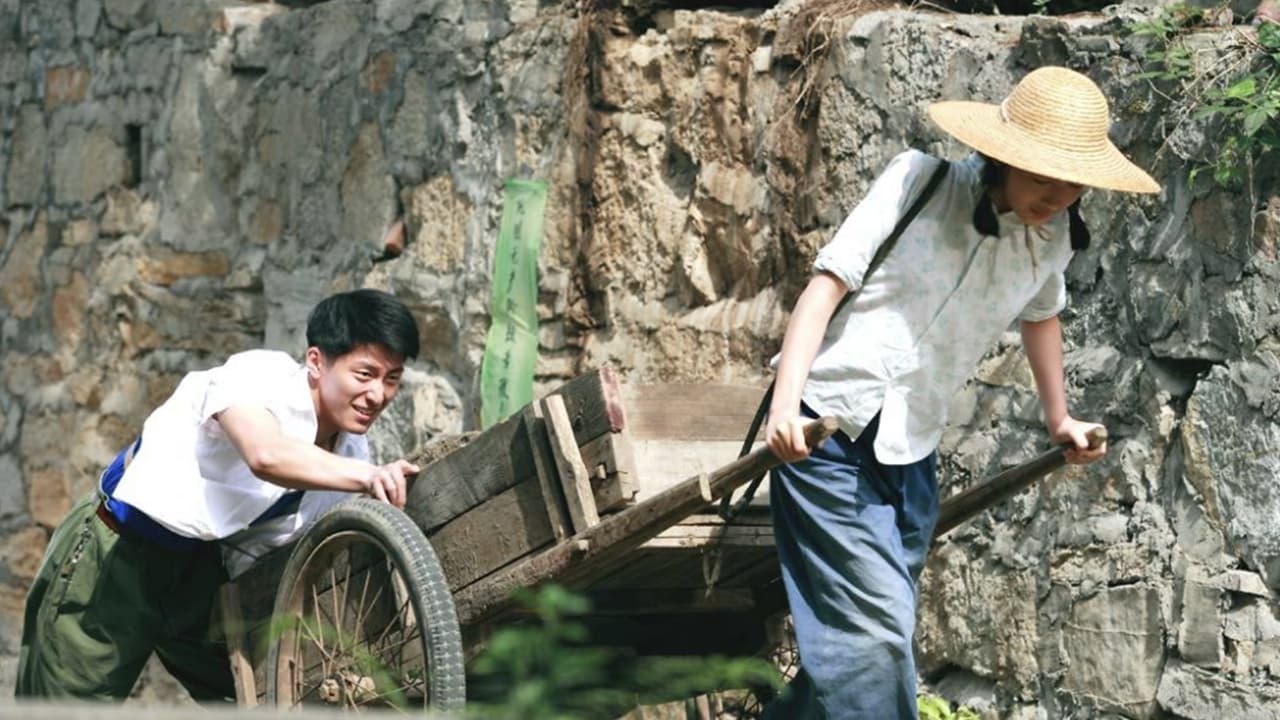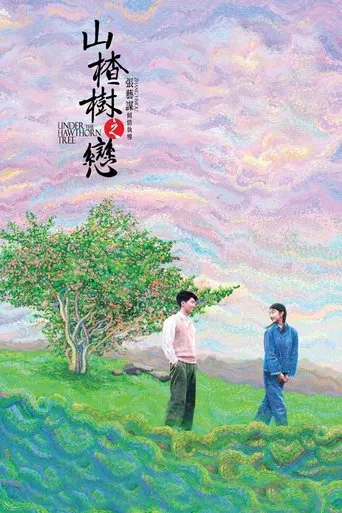phoenix 2
The truth is there are very little movies that make me cry and this one is probably the best. Maybe it's because I love Asian films, especially Chinese, because they have a certain sadness and drama into them. The description of the movie is a poor example of the greatness of emotion that the movie reaches, for sure. The movie tells the story of an innocent young love that ends tragically. But the freshness of the two young people that are in love and happy, blends beautifully with the restrictions of the society and the fear of a bad future. The optimism of the lovers leaves you with a bitter sweet feeling in the end, when the movie concludes. I wasn't sure about the black text sequences that often pop up to provide a boost to the film, but eventually they turn the movie into a novel and you don't even notice them any more. Nice performances from the actors, full of emotion. So, 7 out of 10.
jamesmartin1995
There is a scene, about two thirds of the way through, in which an older woman, mother to three children, sits down with her eldest daughter and the boy she has fallen in love with, and for about five minutes, they speak to each other. These are hard times – all three know it. At the beginning of the scene, the mother is sceptical. She treats the two as children, with their heads in the clouds. But the conversation develops, and gradually, we realise a change in the mother. She cannot back down – in practical, surviving terms, she is in the right. But she softens her approach, and by the end, even has a kind of basic respect for the two, behind her frosty exterior. For she has seen the love that these two have for each other, and recognised it. It was then that I knew I was watching a great movie…If 'Lola' was a disappointment in the Asia Triennial Film Festival this year, Zhang Yimou's new film – a love story set during the Chinese Cultural Revolution – makes up for it tenfold. It's not very often I get the opportunity to rave about a film like this, as they are so rarely done well; cynicism, plot complication and saccharine cliché at turns are what often makes a love story such as this horrifically superficial and painful to watch. But Yimou knows what he is doing. Arguably the finest working Chinese director (with the masterpieces 'Raise The Red Lantern', 'Hero' and 'House of Flying Daggers' to his name), he has succeeded here in making a beautiful, heartfelt film, spilling over with the love and care that has gone into its production. Zhang Jingqiu is a student sent to do research and write a report for her school on a small village in Yichang City. She stays with the head of the village and his family. While there, she meets Sun, a geology student. What follows is inevitable. But how delicately rendered it is: Jing is the most beautiful, innocent young woman Sun has ever seen, and Jing, emotional and vulnerable, is amazed by him. Love at first sight! But this isn't as whimsical as it sounds. Yimou hasn't completely forgotten his political ideals and ability for scathing criticism: with this latest endeavour, he explores just how stifled and suffocating Mao's regime was for everyone under his power, and the emotional deadlock that threaten to destroy his protagonists at every turn. Frolicking, even in the most innocent sense of the work, was risky; Sun and Jing are from different classes, exacerbating the issue. Were they to be found out, her life and ambitions to work as a teacher would be ruined.I was unsure, during the first half of the film, what to think. Yimou makes some interesting structural choices as regarding his narrative – many of the scenes are divided by inter-titles, telling us of an event we are not allowed to see, and then moving on to its aftermath. Most directors would die before doing this – especially in a film requiring the emotional impact this needs – and, I admit, I doubted its benefits at first. But instead of hindering the drive of the plot, Yimou has used it in such a way – not to cut the film into a digestible running length, but simply to avoid over melodramatics, and focus (almost entirely) on the couple in question. Supplementary information is given to us by other means – the filmed scenes are belong exclusively to Yimou's exploration of our two protagonists' relationship. It works perfectly. Of course, we all know the rules. Both lovers are alive at the beginning; the same cannot be said after the end credits begin to roll. What makes this movie so wonderful isn't its startling originality; it isn't going to revolutionise cinema as we know it, or spark off long lasting controversy. Rather, what we are offered is a little less prestigious, but by no means less special. What we find is emotional honesty – when we start to cry at the end, we don't feel cheated; instead, we revel in the director's success. More importantly, though, we have felt for his characters, having engaged with them completely, and have a kind of renewed respect for the kind of pure, unconditional love we have been shown. The film is yet another example of Yimou's mastery of the 'anti-melodrama' – much like his early work, this is incredibly restrained, beautifully measured and patiently observed, shot through with a warmth and tender humanity that shouldn't inspire anything but admiration. Cynics – stay away. But for all the romantics out there (of which I, admittedly, am one), I couldn't recommend this more highly. Simply put, it's exquisite.
Kenji Chan
Under The Hawthorn Tree is on the surface a simple love story, but indeed it is also a subtle political satire on the evils of the Communist Party.1. At the beginning of the movie, the girl believes the red flowers represent the Communist heroes and talks about the "rumor" in the textbook. The ending shows us that it is only propaganda used to promote the heroes and the white flowers of the same tree remind the girl of her boyfriend, instead of the heroes. What's more, the tree which used to symbolize the heroes is now submerged by the water because of a new project. It implies that changes are inevitable as time goes by.2. Why does the nurse say to the girl that the boy does not have an incurable disease? The Communist Party is probably trying to cover up the truth.3. The girl is always expected to take the volleyball back during the game, which shows communism is not void of hierarchy.4. The main characters' parents are also victims under Communist rule.5. The Communist Party song gives me goose pimples. The Communist Party is even closer to you than your parents are? 6. People under Communist rule are deprived of freedom. The girl even dares not call the boy intimately, which leads to the regret.On the whole, it is a poetic and beautifully shot love story with a charismatic cast with different nuances of facial expression. Despite the awkward silences showing the time shifts with written words, I am deeply impressed by the creative mixture of romance and political satire.

